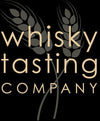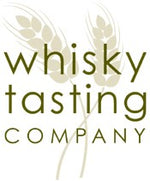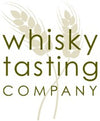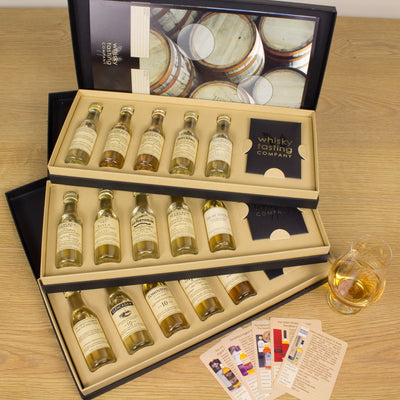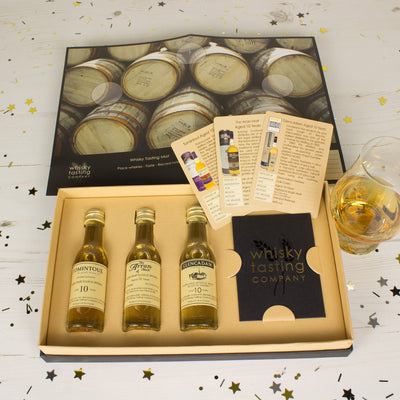Who Invented Whisky: A Glimpse Into Its History
Journey with us through the misty glens and rolling hills where the story of whisky begins.
Whether you enjoy the odd whisky at the pub with your mates or adding to your extensive collection, whisky has a common goal: bringing people together.
Pour yourself a dram to enjoy as we dive into the origins of whisky, from its humble beginnings to its evolution through time.
The Etymology of 'Whisky'
The word ‘whisky’ is believed to originate from the Gaelic language.
In Gaelic, the word begins with the Old Irish "uisce," meaning "water," and "beatha," meaning "life." When combined, they produce "uisce beatha," which translates to "water of life."
Over time, the word was anglicised and abbreviated to simplify its meaning. This led to it becoming shortened to "usquebaugh" across Scotland and Ireland.
Eventually, "usquebaugh" was further shortened and adapted into the modern word "whisky.”
The Origins of Whisky: Unveiling the Mystery
The earliest record of whisky dates back to 1494 in the Exchequer Rolls of Scotland.
This documented Friar John Cor's creation of ‘aqua vitae’ malt during King James IV's reign. However, distillation likely began in ancient Mesopotamia.
During the mediaeval period, Irish monks brought the creation of whisky over to Scotland and Ireland. At this point in time, ‘aqua vitae’ was mainly used for medicinal purposes, and over the centuries, it evolved into whisky.
After it was transformed into a drinkable beverage, whisky production spread rapidly throughout the Scottish population. By the 1500s, whisky was a household item. The Scottish parliament then regulated the production in the 16th century, commercialising the substance.
Whisky's Development in Scotland
Before it became a drinkable substance, monks mainly used whisky to create perfumes and ailments.
Many monks then took their distilling knowledge to the laypeople, and the Malt Tax in 1725 was created to profit from this new invention. However, illegal smuggling and distilling grew in popularity with people selling and producing whisky at night. This is where the term ‘moonshine’ was created.
After this long period, The Excise Act of 1823 finally formalised the licensing system for distilleries, bringing the whisky industry to new heights in Scotland. This allowed them to produce whisky legally without the burden of tax.
Global Journey
Whisky began to spread worldwide in the 18th and 19th centuries, fueled largely by Scottish and Irish immigrants.
The late 1800s phylloxera outbreak impacted French vineyards, reducing wine and cognac production. This decline created opportunities for Scotch whisky to enter new markets, especially in the American and British colonies.
Once the distilling techniques were brought to North America, a rich tradition of whisky production was born. Scottish and Irish styles were merged with local practices and ingredients in the United States, leading to the creation of American whiskey varieties like bourbon.
This then led to various types of whisky associated with its regional development; smoky scotch whisky, smooth Irish whisky, sweet sugar maple Tennesse whisky etc.
Modern Whisky Making
The modern production of whisky includes the following key stages:
-
Malting: The Barley grains are soaked in water to germinate.
-
Mashing: This barley is then dried and ground into a coarse powder and mixed with hot water to extract the sugars, creating wort.
-
Fermentation: Yeast is added to the wort to convert the sugars into alcohol, producing wash.
-
Distillation: The wash is heated in stills to vaporise, condense, and collect the alcohol. This process may occur twice.
-
Maturation: The distilled spirit is then aged in oak barrels to develop flavours and a golden colour over time. The type of wood and the previous contents of the barrel (e.g., sherry, bourbon) contribute to the whisky's final taste.
The Cultural Impact of Whisky
Whisky remains a popular alcoholic beverage to this day, bringing communities together across the globe.
It has influenced cultural practices and policies worldwide, finding itself at the centre of historical economic policies and taxation laws, most notably the Whisky Rebellion in the United States.
Scotland, Ireland, and the United States host whisky-related events all year round. This continues to attract tourists and aficionados alike, improving local economies and protecting traditional crafts.
Indulge in Luxurious Whisky sets with The Whisky Tasting Company
Have you got a few birthdays coming up that you need to find the perfect gift for? Or do you want to expand your whisky knowledge and collection?
If so, we have a wide range of whisky gift sets and subscriptions waiting for you.
From old and rare Scottish whiskies to Japanese treasures, we have something for every taste.

